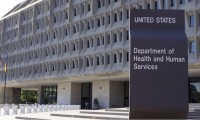-
With filing in Sanofi and Mylan insulin lawsuit, FTC amps up scrutiny on pharma’s patent tactics
- Source: drugdu
- 102
- November 23, 2023
-
Jazz Inks $770M Deal with GSK Spinout Autifony, Nabs Two Neuro Assets
- Source: drugdu
- 117
- November 16, 2023
-
$13M NIH grant funds research to rejuvenate immune system in older adults
- Source: drugdu
- 110
- November 3, 2023
-
Five pharma firms fined €13.4m over EC’s cartel investigation
- Source: https://www.pharmaceutical-technology.com/news/five-pharma-firms-fined-e13-4-million-over-ecs-cartel-investigation/
- 132
- October 30, 2023
-
Actym Therapeutics Extends Series A Financing with Additional $25.5M Closing
- Source: drugdu
- 104
- October 20, 2023
-
AbbVie announces positive results from head-to-head study of Skyrizi in Crohn’s disease
- Source: drugdu
- 112
- October 19, 2023
-
Will Big Pharma engage in Medicare price negotiations? AZ, BMS say they will
- Source: drugdu
- 106
- September 29, 2023
-
New Biotech Targets Rare Respiratory Disorders with Inhaled Gene Therapies
- Source: drugdu
- 106
- September 18, 2023
-
AbbVie shares positive results from head-to-head study of Skyrizi in Crohn’s disease
- Source: drugdu
- 150
- September 15, 2023
-
HHS argues Merck ‘lacks standing’ to sue over Medicare price negotiations
- Source: drugdu
- 110
- September 15, 2023
your submission has already been received.
OK
Subscribe
Please enter a valid Email address!
Submit
The most relevant industry news & insight will be sent to you every two weeks.













